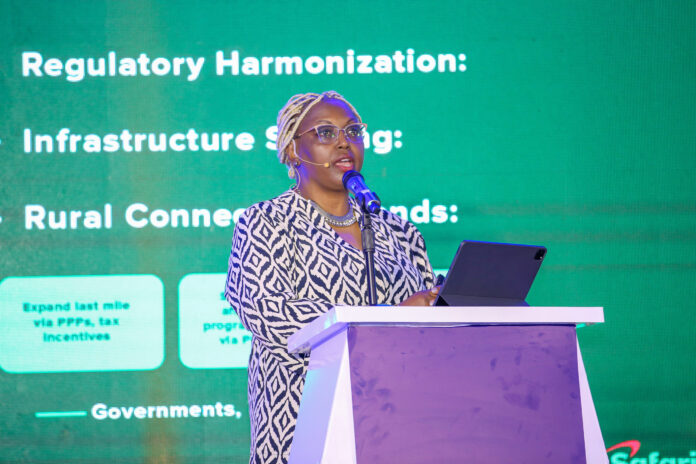Africa will make real gains from Artificial Intelligence and not the West as some have thought as the global population, especially in Western countries decline.
According to a 2029 UN report dubbed the World Population Prospects 2019by the end of the century, the planet will have to sustain around 11 billion with India overtaking China while sub-Saharan Africa’s population will double by 2050.
By around 2027, India, along with eight other countries, will make up over half of the estimated population growth.
“Africa will be the ones that will make the real gains,” said William Kabogo,Kenya’s CS for ICT and Digital Economy speaking at the launch of the Connected Africa Summit 2025 being held in Diani. “Africa will greatly benefit from Artificial Intelligence, as opposed to just looking at the West. That is just about it for me. So we pull up our socks, we (need) get together sometimes. I hope we can close our boundaries for some time and just deal with ourselves in there.”
Though Kenya hasn’t made any strides in Artificial Intelligence apart from launching an AI Strategic paper, the minister is hopeful Africa’s burgeoning population will benefit greatly from AI and any other modern technologies as population in the West declines.
Japan, once the world poster boy for manufacturing and industrialization, has seen its population dip to 120.3 million as of October 2024, a record 898,000 drop from the previous year. Japan has one of the lowest birth rates in the worldraising questions on its future workforce and consumer market.
According to Cynthia Kropac, Chief Enterprise Business Officer, Safaricom speaking on Africa’s AI future, building the right foundation, and how to get the basics right said that while the world debates AI’s impact, Africa has a unique opportunity to define its own AI destiny as it represents about 17% of the world’s economy, with 75% of Africa’s population below the age of 25.
“By 2050 our continent will represent 25% of the world’s population, growing at a staggering rate of 12 in one 120,000 babies born a day. We are a productive continent, leading the world in growth and opportunity. Our children that are being born digital natives. It’s how they interact with each other, it is how they learn it’s how they build their online personas and their businesses. But the reality is, this world would be challenged when we have broadband connectivity reaching only 40% of our population.”
However, across the continent, over 400 million Africans remain disconnected from the digital world and companies like Safaricom are building connectivity as the basic underpinning for any technology to have power and impact.
“Broadband expansion is critical to enable trade, fintech, education and AI innovation,” she said. “Our growing population needs education, it needs healthcare, it needs employment, accelerating broadband access then becomes an urgent priority.
According to her, AI can help accelerate this transformation, it can help transform healthcare access, offering affordable diagnostics, remote consultations, predictive health models in agriculture, helping farmers with more precision farming, optimizing their yields and adapting to Climate change.
With AI, Africa has the potential to add $1.2 trillion to its GDP over the next five years, just by automation and enhancement of healthcare, optimizing of food production and delivering
Despite having 17% of the global population, Africa is contributing to less than 1% of the world’s data center capacity. High energy costs, unreliable power, regulatory hurdles also slow the progress.
Africa generates unique data sets with over 2000 languages but to date, AI models struggle with Africa’s linguistic diversity, low resource. AI models often fail to serve all Africans due to limited training on these local data sets, Africa must build critical data sharing fluency through informed consent, transparency of use, regulation and compliance, which unlocks the power of cross border digital identity that allows our African brothers and sisters to traverse the continent without friction.
“The AI story and its journey will be written and experienced, but I assert that for Africa’s AI evolution and its progress, that story will be written by us,” concluded Kropac.
George William Nyombi thembo, the executive director of Uganda Communications Commission (UCC) “Kenya, is very important to Uganda. All of us know this, if getting connected physically is very important to Uganda, then getting connected digitally is even more important, like the saying goes, digitally connected. When Kenya sneezes in Uganda, we don’t only catch a call, but we get a real headache. So we are always excited to be here to follow the conversation, to follow the innovations taking place in Kenya, and you are such amazing neighbors who are already always ready to share with your young brothers. Uganda is always proud to learn from you, and we are always ready to collaborate.”
Reading This Now 214


